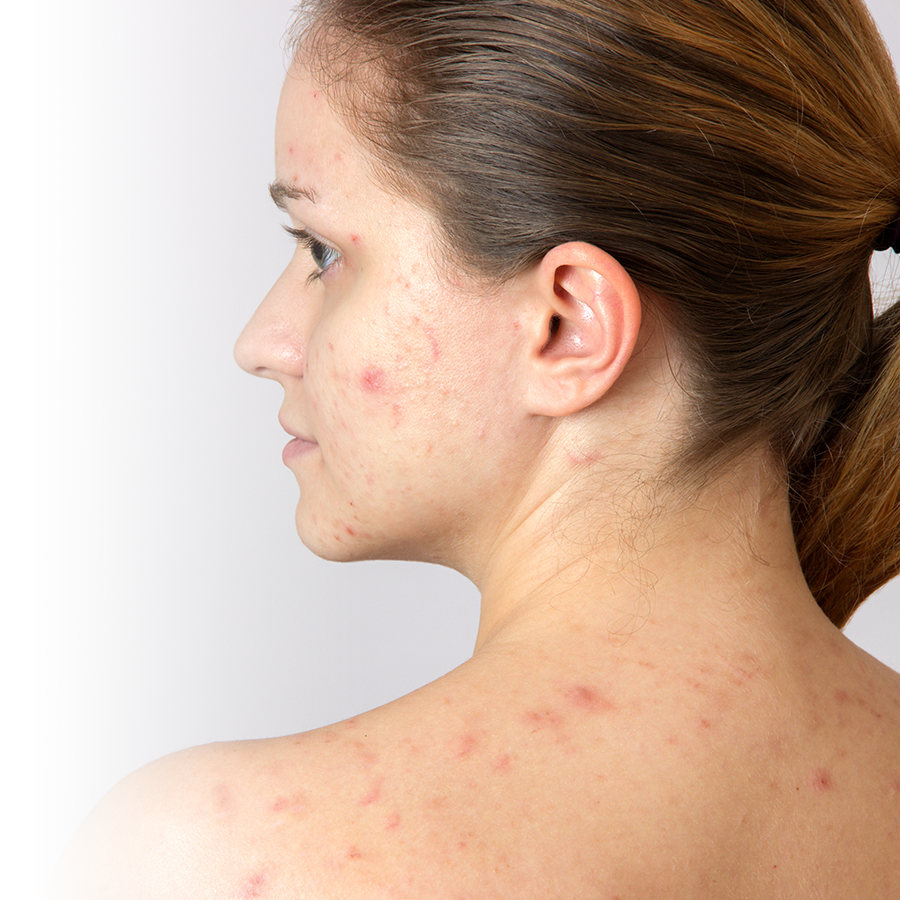1
Thoroughly clean your skin
It’s worth repeating again: this is an ESSENTIAL step in the fight against pimples. In order to get rid of impurities, dirt and excess sebum accumulated throughout the night or day, you need to wash your face twice a day (morning and night). If you don’t, your pores might become clogged, which will increase the risk of acne. Make sure to clean your face daily with lukewarm water, taking care to use a gentle, fragrance-free cleanser that’s adapted to your skin type. And avoid traditional soap bars, which in fact make your skin more prone to acne: they’ll dry out your face and eliminate the natural oils secreted by the skin, leading to excess production of sebum, which in turn promotes acne. Another good habit to adopt is cleansing your skin deeply once or twice a week with the help of an exfoliant or a mask.
2
Moisturize your skin
Specialists agree: moisturizing acne-prone skin is an essential step because dehydrated skin increases the production of sebum, which in turn aggravates acne. Use a non-comedogenic moisturizer designed for oily skin. Another good tip is to drink lots of water every day. This will keep your skin hydrated and healthy.
3
Watch what you eat
In addition to good hygiene and the right beauty routine, you need to see what’s in your pantry and fridge. Even though it’s not been completely scientifically proven, many specialists agree that what you eat can affect your skin.
Avoid consuming too much:
- synthetic trans fats, found in many processed foods
- sugar
- rice
- white bread
- gluten
- dairy products
- beer
Eat plenty of:
- wholegrain cereal and flour
- fatty acids (Omega-3 and 6)
- barley, bulgur, and quinoa
- leafy greens
- sweet potatoes
- legumes (chickpeas, lentils, etc.)
- almond or soy milk
- oily fish (tuna, salmon)
- foods rich in fibre
Tip: if the idea of cutting all these foods out of your diet seems daunting, you can keep a food diary and check it when you’re suffering from an outbreak. It will be easier to identify which foods make your skin prone to acne.
4
Keep your hands away from your face
We all know that touching your pimples or your face with dirty hands is not a good idea. The reason is simple: you might transfer bacteria onto your face that make it more prone to acne. In fact, some bacteria proliferate in an environment with lots of sebum, causing your skin to become inflamed. To sum up, bacteria contamination is responsible for turning a simple clogged pore into a giant, red and painful zit.
5
Avoid prolonged exposure to the sun
The sun has two adverse effects on acne-prone skin. First, it dries the skin. This, combined with a bronzed complexion, might trick you into thinking your skin is healthier when tanned. Unfortunately, this is usually a short-lived misconception because the sun also makes the top layer of the skin thicker. Pores get clogged, the skin produces an excess of sebum and… new pimples appear! Anyone suffering from acne should therefore limit their exposure to the sun and make sure to regularly apply sunscreen.
6
Ladies, change your foundation
When a pimple shows up on your face your initial reaction might be to conceal it. But be careful, if you use a product that’s not adapted to your skin type, you might make the situation worse. Why? Because skin with acne is fragile, irritated and sensitive, it could react to the formula in certain foundations. Thankfully, there are several non-comedogenic products that are designed for this skin type and can even be used every day. Make sure to remove your makeup every night before you go to bed!

